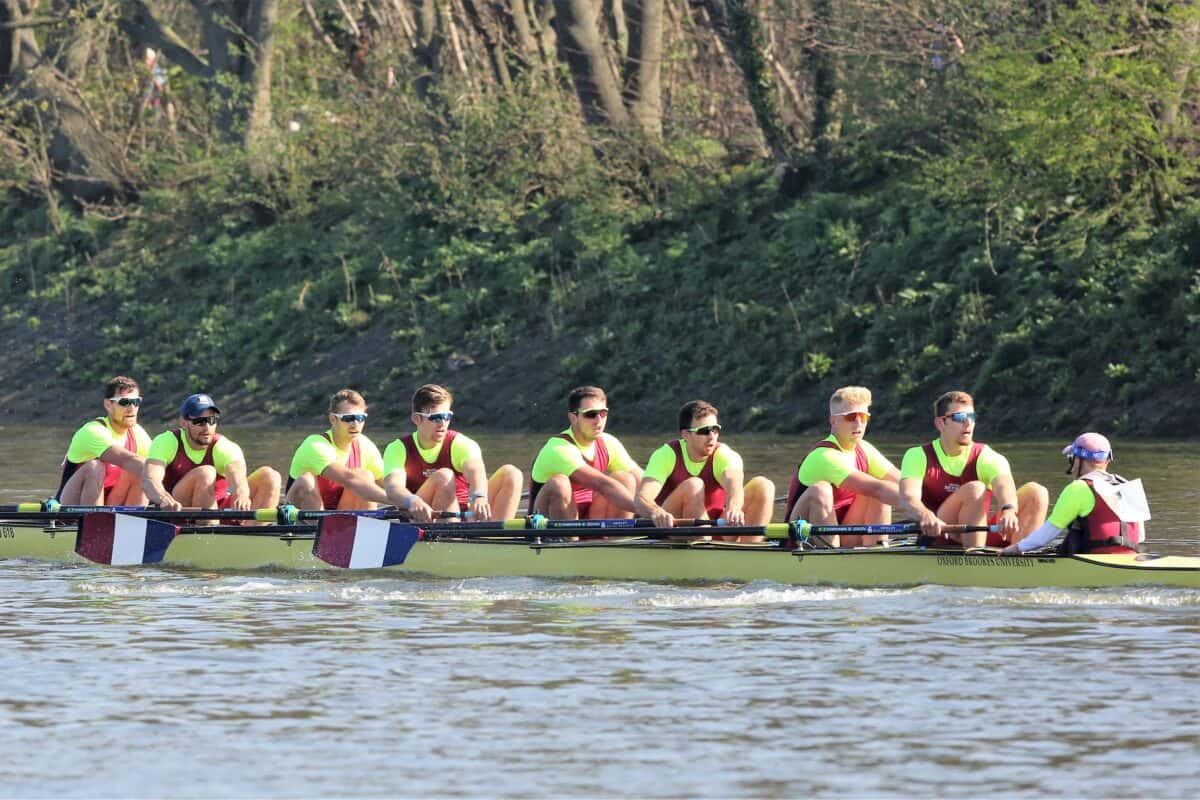
29 Mar 2022
Top-class field for the Head of the River Race
Oxford Brookes University dominated the Head of the River Race in London on Saturday, when they took a massive 15 second margin of victory ahead of Leander in second place and the Brookes B crew not far behind in third.
Leading the time trial downriver on the ebb tide, Brookes was one of very few crews ever to have recorded a sub-17 minute time down the traditional course between Mortlake and Putney in south-west London.
Their crew featured a clutch of Olympians, including Josh Bugajski from the GB men’s eight and Rory Gibbs from the four, with Tokyo spare Morgan Bolding helping to anchor the Brooks engine room. Leander, with Sholto Carnegie and Jacob Dawson on board, were looking to challenge Brookes for the title, but the loss of several crew members due to illness and injury, including another Olympian, Matt Rossiter, severely dented their chances.
Brookes had come into the race as title holders after recording their second successive win in 2019, when the race was last held, while the COVID pandemic had forced the cancellation of the event for the last two years.
With a reduced number of foreign entries it was Cork Boat Club of Ireland who won the pennant for the fastest overseas crew in 19th place overall, while the club entries from Germany, Switzerland and the Netherlands were back down the field.
It was a day of glorious spring sunshine with a gentle breeze, in marked contrast to the rough conditions which have forced the cancellation of the event several times in recent years.
The Head race was founded by an Australian, Steve Fairbairn, who attended Geelong Grammar School before moving to the UK to study at Cambridge University, where he rowed in the Boat Race four times, winning twice. He went on to become a successful coach and believed strongly in the benefit of long-distance training over the winter – the saying “Mileage makes champions” features strongly in his many books on rowing.
Since its foundation in 1926 the Head has become the model for countless numbers of other time trial events right around the world. The success of the London event forced organisers to limit the entry to 420 crews for safety reasons, but this year’s entry of 295 was far below that maximum.
Since its inception the race has been held over the 6.8 km Championship Course, the venue for many top class events over the last 200 years, including the Wingfield Sculls (the amateur championship of the Thames) and the Oxford-Cambridge University Boat Races, which are held in the opposite direction on the flood tide.
Copy thanks to Robert Treharne Jones

